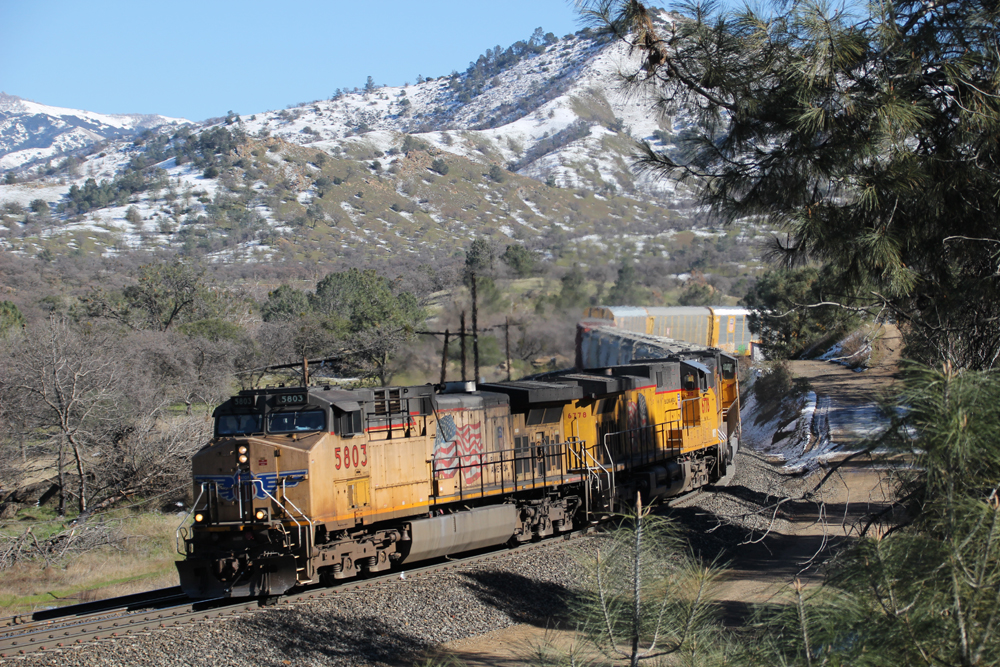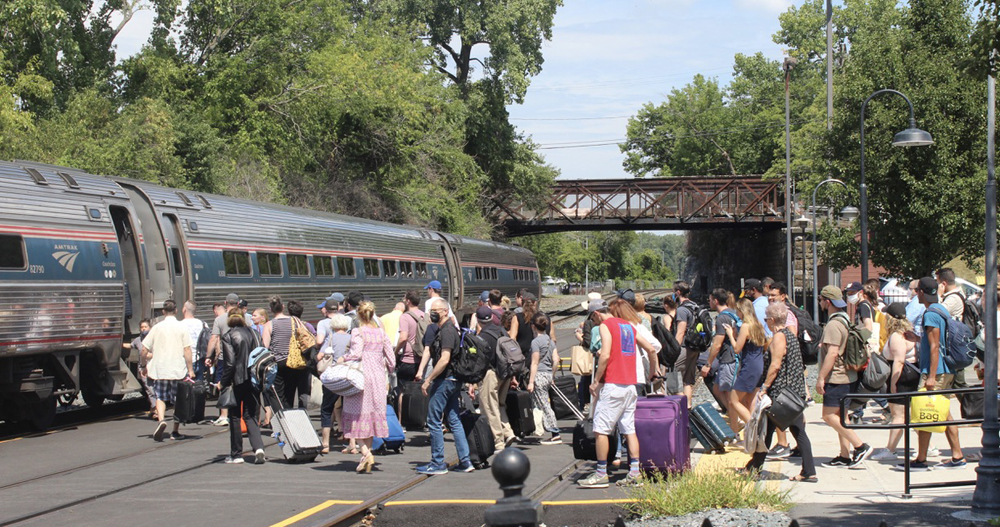
SACRAMENTO — California legislation that would limit train lengths and require wayside detectors cleared its first hurdle in the state legislature last week, advancing through the Senate Committee on Energy, Utilities, and Communications.
The bill, which advanced by a 12-4 vote on April 21 with one committee member not voting, was introduced in February by state Sen. Bob Archuleta (D-Norwalk). It now must clear the Senate Transportation Committee.
Senate Bill 667 would cap freight train length at 7,500 feet; require wayside hotbox, hot wheel, and dragging-equipment detectors every 10 miles; and require stopped trains to be cut or moved to clear grade crossings for emergency equipment. Violations of any of the provisions would bring fines starting at $5,000 and escalating to $25,000 per incident. Video of the hearing on the bill is available here.
While the bill passed on a straight party vote among those present, the news site Cal Matters reports that committee chair Josh Becker (D-Menlo Park) expressed concerns that the law would be overturned would be subject to federal preemption — that federal law prevents state action on matters of interstate commerce. Last year, the U.S. Supreme Court declined to hear an appeal of an Ohio Supreme Court ruling that federal law prevented enforcement of a state law regarding blocked grade crossings. [See “U.S. Supreme Court won’t hear …,” Trains News Wire, Jan. 11, 2024].
Becker also expressed concern that the law could restrict the movement of goods and “price spikes that we saw happen and hit consumers during the pandemic.”














Does anyone happen to have a running total of how many states have introduced these length-limiter bills, and how far they got? Perhaps it’s time that the US Congress looked into limiting train length themselves.
Amen. It’s amazing with how much people grumble about how it’s a problem, they only scoff when anyone attempts to do something about it
Why do states keep wasting their time on these bills?
For the soundbites and photo ops at election time
Because their constituents (all sides) ask for these kind of bills, even if they fail.